Alphabet
Latest

Alphabet's Verily details its research-focused health watch
Google has made a smartwatch, but not the kind you might expect. Verily, the health organisation owned by Google parent company Alphabet, has (finally) announced its 'Study Watch' for medical research purposes. It doesn't run Android Wear, nor does it help you manage the notifications on your phone. Instead, it passively captures health data "critical to the success of continuous care platforms and clinical research," including heart rate, electrodermal activity (the skin's ability to conduct electricity) and body movement. It can also produce an ECG, a recording of the heart's electrical activity, which can sometimes reveal heart problems.

New York City's free WiFi kiosks speed up access to social services
When New York City launched its LinkNYC gigabit free WiFi program last year, it was a win for internet accessibility. With over 800 devices currently spread across New York City, the kiosks provide municipal broadband for anyone in WiFi range, as well as charging outlets, free phone calls, maps and directions, 911 access and a built-in tablet anyone can use. While the city unfortunately had to disable the web browsers due to some users' awkward browsing habits, LinkNYC kiosks are getting a new feature that will help users without internet access quickly find social programs and safety net services.

A 'brand new' Google Earth will arrive April 18th
Google just sent out invites for a pre-Earth Day event in New York City next week. In keeping with the obvious theme, the search giant is promising to take the lid off of a "brand new experience" for Google Earth.

Uber's legal defense: Waymo does LiDAR better, for now
Uber has finally responded via the courts to Waymo's allegation that it's using the Alphabet company's Lidar technology. The ride-hailing company called Waymo's injunction motion to stop using technology that was allegedly misappropriated from Google servers a "misfire." It also insisted that because it's developing multi-lens LiDAR technology instead of the single-lens that Waymo uses, it's not using stolen technology.
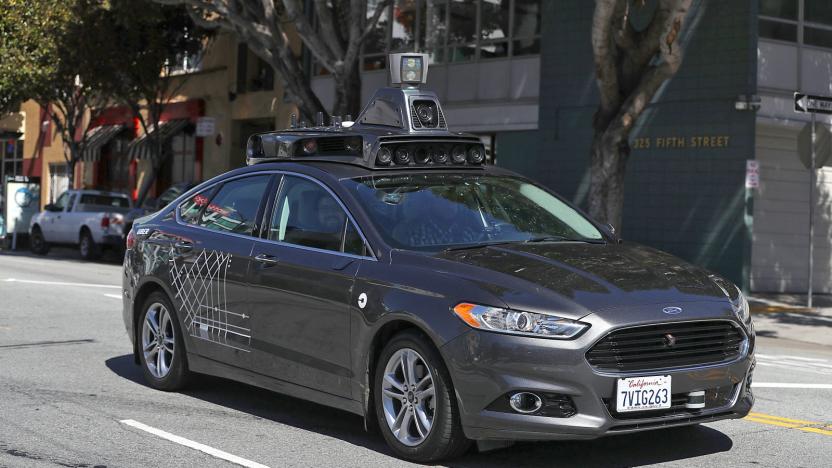
Alphabet bests Uber in self-driving car reliability
It's no secret that Uber's young self-driving car program still needs work, but how does it stack up next to efforts from others? Not so well, it seems. California's Department of Motor Vehicles has published stats showing that Alphabet's Waymo is well ahead of the pack. While Uber's data (not part of the DMV report) shows that its autonomous system disengages about once every mile, Waymo's only requires human intervention once every 5,128 miles. Nissan's system, meanwhile, disengages once every 146 miles.

Google hopes license sharing will stop Android patent trolls
With over 4,000 different devices released in the last year alone, the Android ecosystem is massive. That kind of scale can lead to a lot of copyright confusion and patent squabbling on the platform, which Google would probably like to avoid in the future. So, to save everyone the licensing headaches and unnecessary lawsuits, Google has just announced PAX -- a short acronym for the long-winded "Android Networked Cross-License Agreement."

Google doubles down on the news part of its 'News & Weather' app
Folks looking for a quick look at day's forecast and stories have always been able to turn to Google's News and Weather app for an overview -- but apparently, it didn't offer enough. According to Google News' Anand Paka, users routinely hit the bottom of the app's home page wanting more. So they're getting more. Today Google announced that more than 200 news stories will be added to the bottom of the daily summary as a new, plainly named section: More Headlines.
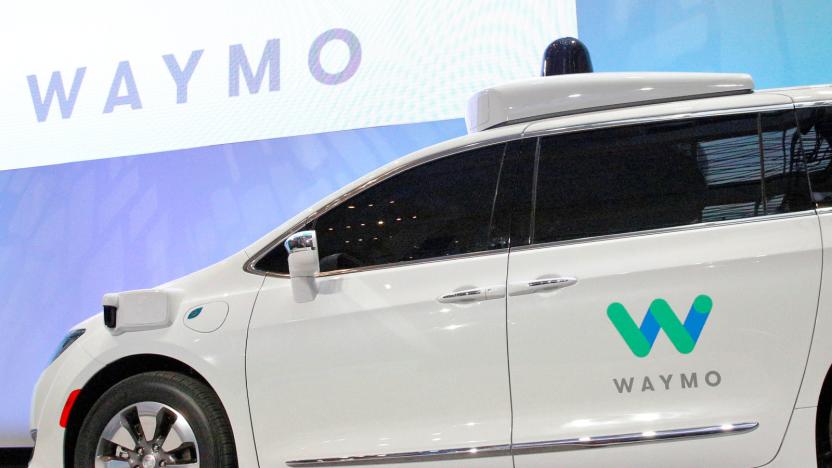
Alphabet's new VP will grapple with self-driving car regulation
For Alphabet's Waymo, technology might not be the biggest challenge to putting self-driving cars on the road -- it's making sure there's a regulatory framework that allows those cars on the road. Appropriately, Waymo has hired a new vice president for public policy, Tekedra Mawakana, who will help the company fight for the regulation it wants. She'll help "realize the enormous safety, mobility and economic benefits" of autonomous tech, Waymo CEO John Krafcik tells Recode.
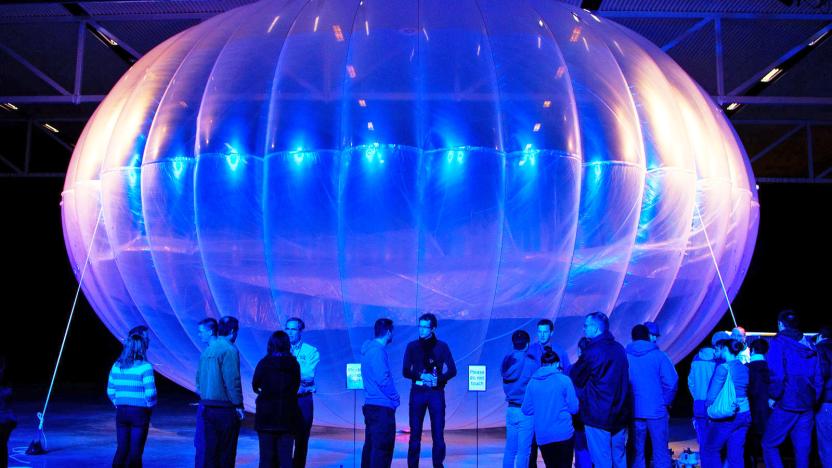
Alphabet's internet balloon chief leaves after 6 months
Alphabet's Project Loon is running into some figurative turbulence in addition to the literal kind. Tom Moore, the satellite executive who was brought on as CEO to help Project Loon become a full-fledged business, has left the leadership position after just 6 months. It's not clear why he's on the way out (neither he nor Alphabet are commenting), but he's being replaced by Alastair Westgarth, a wireless industry veteran best known for turning startups into viable companies. His "vision" for the internet balloon project matches the strategy of Alphabet's X division, "approaching huge programs, at scale, to improve the lives of millions or billions of people," the company says.

Alphabet asks court to halt Uber's self-driving car project
Alphabet's self-driving car division Waymo seeks to completely block Uber's autonomous vehicle operations, according to new documents filed in federal court Friday. The documents are part of Waymo's lawsuit filed against Uber last month and the company is seeking a preliminary injunction which could prohibit Uber's self-driving vehicle tests while the case is ongoing.
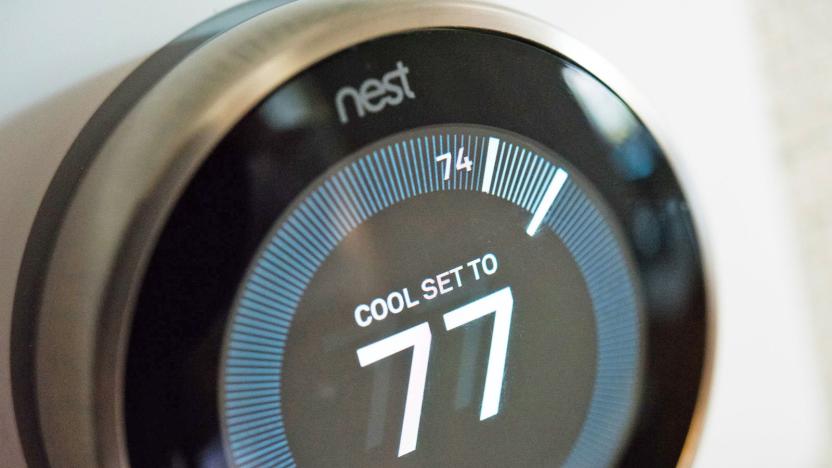
Nest said to be working on home security and a low-cost thermostat
Notice how Nest hasn't had any truly new products lately? If you believe insider accounts, it's no coincidence -- management troubles, and the struggle to develop a home security system, left it with little to show. However, it now looks like it's back on track... and then some. A Bloomberg source claims that Nest has multiple new products in the works, headlined by a reborn security system. The "end-to-end" design would include a central hub with a keypad, alarm sensors and a quick control fob. That doesn't sound too unusual, but it'd pair with a mobile app that lets you greenlight access for specific people, such as a friend checking in on your pets. The security setup is reportedly due to ship this year.

Alphabet sues Uber over Waymo's self-driving car tech
Waymo, Alphabet's autonomous car business, has sued Uber for stealing crucial technical information about its self-driving technology. Waymo's lawsuit targets Otto, a promising self-driving truck startup that Uber acquired in mid-2016. As we noted in August, Otto was founded and staffed by former Google employees, including Anthony Levandowski. "We found that six weeks before his resignation this former employee, Anthony Levandowski, downloaded over 14,000 highly confidential and proprietary design files for Waymo's various hardware systems, including designs of Waymo's LiDAR and circuit board," Waymo writes.

Alphabet fights 'toxic' comments with machine learning
If you've spent any time at all on the internet, you know that finding civil conversation can be a real challenge. Whether on YouTube, Facebook, Twitter or your favorite news site, trolls can often dominate and derail the conversation. Today, Alphabet company Jigsaw has announced that it is using its machine learning chops to combat the problem. Perspective, which launches today, is an "early-stage" technology using machine learning to identify "toxic" comments. Furthermore, publishers will have access to an API to include this technology on their sites in the hopes that it'll lead to better conversations.
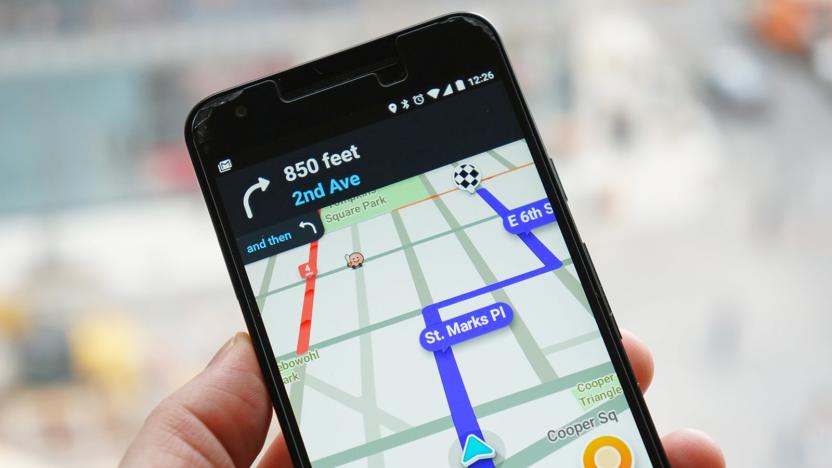
Google's ride-sharing platform is expanding beyond the Bay Area
After successful tests of its casual carpool service in the Bay Area and Tel Aviv, Alphabet's combination navigation app and ride-sharing platform Waze is ready to expand beyond its first two test markets. According to a new report from the Wall Street Journal, the Waze Rider companion app will launch new service in "several US cities" as well as Latin America over the next few months.
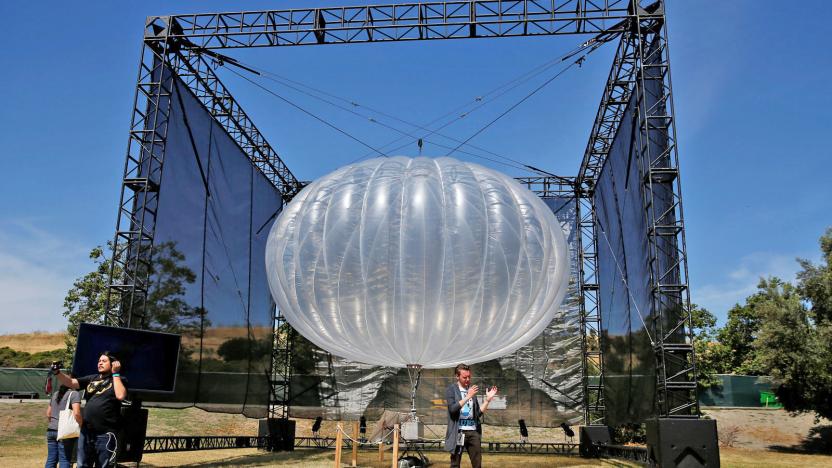
Alphabet won't need all those internet balloons after all
Since it launched nearly four years ago, Alphabet's Project Loon experiment has shifted from an unlikely moonshot to an idea that might actually work. As Alphabet's experimental X division chief and "Captain of Moonshots" Astro Teller wrote today, the project team has "now exceeded even their own expectations," in the attempts to build a network of self-navigating, internet-beaming balloons. "And in the process they've leapt much closer to a day when balloon-powered Internet could become a reality for people in rural and remote regions of the globe."
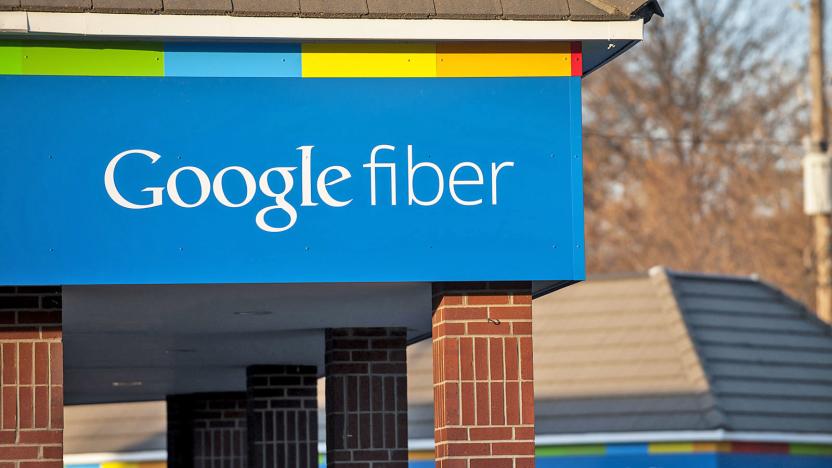
Google Fiber is restructuring and taking a new direction
Alphabet is making some huge changes to steer Google Fiber in a new, more wireless direction. According to Wired, the corporation has reassigned hundreds of Fiber employees to other parts of the company and those who remained will mostly work in the field. It has also hired broadband veteran Greg McCray as the new CEO for Access, the division that runs Google Fiber. These changes don't exactly come out of left field: back in October, Google announced that it's pausing the high-speed internet's expansion to new markets and that it's firing nine percent of the service's staff.
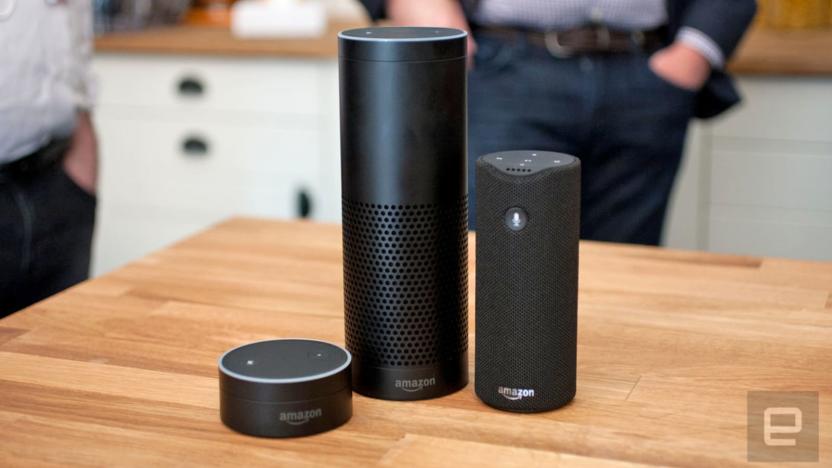
Amazon Echo and Google Home want to be your new house phone
Right now, you can order a pizza, manage your to-do list and call an Uber on Amazon Echo and Google Home. The latest development from the smart speakers would give us yet another reason to leave our phones in our pocket. The Wall Street Journal reports that Amazon and Google are considering adding telephone functionality to their devices, but it won't be easy.
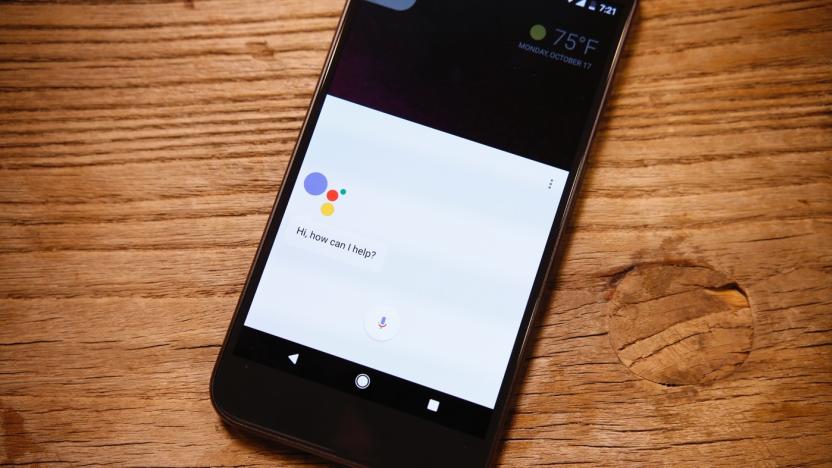
Google Pixel's Assistant AI upgraded for smart home control
At Google I/O last May, the tech giant announced its own voice-powered hub to rival Amazon's Echo: the Home, which would be powered by their AI helper, Assistant. The Siri-like software was promoted as a standard feature on the search titan's first phone, the Pixel, which came out later in fall. But Google announced a plan weeks ago to bring the hub and the help back together, promising to bring some of Home's connected device control to the company's smartphone line. Today, they started rolling out Home Control for some versions of their mobile platform, allowing users to use voice commands to fiddle with their network of connected home devices.

Planet acquires Google's Terra Bella satellite imaging division
Google's has officially sold off it's satellite imaging division. An announcement from rival imaging company Planet confirms it will acquire Terra Bella from Google and take over operation of its seven high-resolution SkySat satellites. Once the deal closes, Google will start purchasing images for Google Earth and other products directly from Planet.

Alphabet's moonshots are making more money, still aren't profitable
Alphabet, Google's parent company, continues to rake in money hand over fist. In its fourth and final quarter for 2016, the company reported $26.02 billion in revenue, which is a growth of 22 percent compared to this time last year. According to a press release, this performance was led by "mobile search and YouTube," which makes sense since advertising continues to be Google's bread and butter -- $22.4 billion of that revenue came from advertising. This time however, even Alphabet's non-Google properties improved revenue-wise -- it reported $262 million revenue from its Other Bets this quarter, which is an improvement over the $150 million from this time last year. Indeed, Other Bets made $809 million in the entirety of 2016, which is up 82 percent over 2015. CFO Ruth Porat said during the earnings call that a lot of this can be attributed to the performance of Nest, Fiber and Verily. She specifically called out Nest, saying that Black Friday and Cyber Monday sales of the connected home products nearly doubled during that time. That said, its Other Bets properties are still operating under a loss; it lost over a billion dollars this part quarter. And even though CEO Sundar Pichai wouldn't reveal just how much Google hardware was sold, he did say that the "early signs are promising." He specifically pointed out that Google Home was a "very popular present" over the holidays, though he refused to divulge actual numbers. Pichai attributes a lot of this success to the improvements in machine learning, and how that informs every product Google makes -- everything from search to maps to, yes, its hardware too. "Computing is going from mobile first to AI first," said Pichai. "Machine learning is central to who we are as a company and the products we make."









